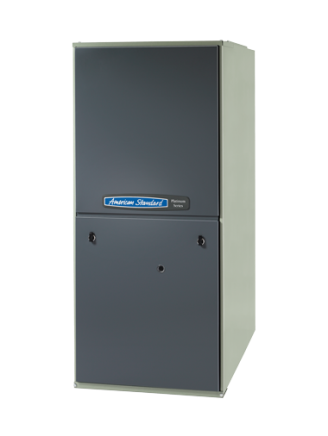
It is not unusual for a furnace to lose its efficiency over time. An old furnace can also develop problems frequently. If your furnace is on its last legs, consider replacing it before it goes out. A new furnace is reliable, energy-efficient, and capable of meeting your household’s heating demand.
How much will a new furnace cost? This is one of the first questions that come to the minds of homeowners once they have decided to have their old furnaces replaced. A new furnace can cost between $2,800 and $6,800 (installation included) The average cost of new furnace installation is $4,700.
Some Factors that Affect Furnace Costs are Furnace Type and Size, Brand, and Efficiency.
Type
Although furnaces operate on similar principles, their energy sources vary. Depending on the type of fuel used, furnaces can be classified into three types-electric, natural gas, and oil.
Electric
If you want to have an electric furnace installed, expect to pay between $2,000 and $7,000. Electric furnaces use heating coils to heat the air, which is then distributed throughout the house via vents and ducts. The power output of electric furnaces is measured in kilowatts. A drawback of electric furnaces is that they need large amounts of electricity to run.
Natural Gas
Natural gas furnaces can cost between $3,800 and $10,000. Homeowners planning to opt for high-efficiency models can expect to pay more. Though a high-efficiency furnace typically costs more, it can help you save on home heating costs in the long run. Gas furnaces heat homes quicker than their electric counterparts. Another compelling reason to opt for natural gas furnaces is that natural gas is a cleaner fuel than wood and oil.
Oil
The cost of an oil furnace can vary between $6,750 and $10,000. Oil furnaces often cost more to run than natural gas furnaces due to two reasons- a)-oil is usually more expensive than natural gas and b)- oil furnaces are less efficient than natural gas furnaces. Because oil furnaces need frequent tune-ups and their filters must be changed regularly, they may also cost more to maintain. Oil furnaces, however, are typically safer than gas furnaces as they usually produce less carbon monoxide than their gas-powered counterparts. Also, when maintained properly, oil furnaces can last longer than gas furnaces.
Size
It is important that you choose the right furnace for your home as a smaller or larger furnace uses more electricity and keeps running into problems, requiring frequent HVAC furnace repair in Gaithersburg.
As is the case with air conditioning systems, the size of furnaces is measured in British thermal units (BTUs). To determine the right size furnace for your home, multiply the square footage of the space you aim to heat by 40. Say you have a 2,000 sq ft home, you will need a furnace with an output of 2,000×40=80,000 BTUs.
Typically, a furnace with an output of 40,000 to 60,000 BTUs is suitable for a 700-1,500 square feet home and will cost between $2,000 and $3,000. For much larger homes of up to 5,000 square feet, this figure can reach $6,500. If your home has cathedral ceilings or draft-prone windows and doors you may need a larger furnace with a higher BTU output.
Brand
Products by reputable brands usually cost more. They are, however, usually of better quality than products by lesser-known brands. The benefits of a quality product far outweigh its cost. Top-of-the-line products by reputable brands usually last longer and are more reliable.
Efficiency
While a high-efficiency furnace costs more upfront, it can help lower your electricity bill, leading to savings in the long run. To calculate how much you are likely to save on heating costs, multiply the difference in the efficiency of your new and old furnace with your monthly electricity bill. So, if you buy a furnace that’s 25% more efficient than your existing one, multiply your monthly bill by 25% to calculate your potential savings.
Calculating Furnace Replacement Cost
Some factors that can affect furnace replacement cost are labor, permits required, and the condition of existing venting and ductwork. Your contractor must first remove your old furnace before starting a new furnace installation in Gaithersburg, so consider furnace removal costs as well.
AVS Heating and Air Conditioning is committed to helping homeowners maintain their HVAC systems all year round. Our expertise enables us to diagnose and address the root causes of HVAC problems. To learn more, call 703-457-9028.


